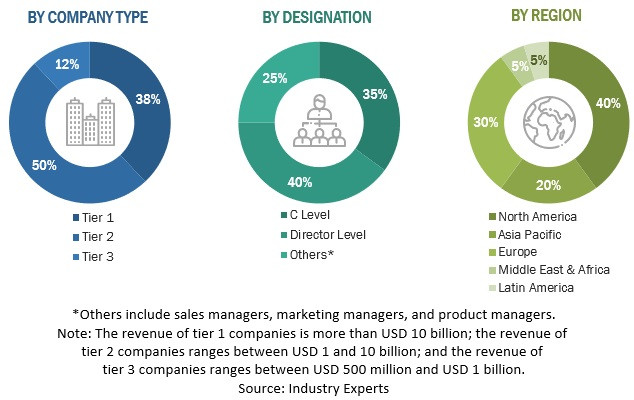Synthetic Data Generation Market Share, Growth, Innovation and Forecast 2028
The worldwide synthetic data generation market is predicted to grow from USD 0.3 billion in 2023 to USD 2.1 billion by 2028, registering a CAGR of 45.7% over the five-year period.
The global synthetic data generation market has various applications such as data democratization, AI/ML training and development, data anonymization, test data management, enterprise data sharing, data analytics and visualization, data monetization, and others. The major end-users of the Synthetic Data Generation market include BFSI, Healthcare & Life sciences, Retail & E-commerce, Automotive & Transportation, Government & Defense, IT and ITeS, Energy and Utilities, Manufacturing, and Other Verticals.
Download PDF Sample: https://www.marketsandmarkets.....com/pdfdownloadNew.a
Synthetic Data Generation Market Advantages
• Protection of privacy: Organisations can work with data that is representative of actual situations while maintaining individual privacy thanks to synthetic data generation. Privacy problems can be reduced by creating synthetic data that mimics real data's statistical characteristics and patterns but excludes personally identifiable information. This is crucial in fields like healthcare and finance that deal with sensitive or regulated data.
• Data diversity and accessibility: Synthetic data generation tackles the problem of data shortage. It offers a way to produce huge amounts of varied, realistic data that closely resembles data from the real world. This is particularly helpful in fields where acquiring enough real data is expensive, time-consuming, or unfeasible. Synthetic data removes the constraints placed by data availability and enables more thorough testing, training, and experimentation.
• Cost-effectiveness: Acquiring real data can be expensive because it takes time and money to acquire, store, and manage the data. By lessening the need on pricey real data collecting, synthetic data production provides a financially viable alternative. It is simpler and more affordable to generate more data samples as needed after the infrastructure for synthetic data production has been developed.
• Scalability and flexibility: Synthetic data production offers both scalability and flexibility in terms of data modification. Organisations can produce data with the appropriate properties, distributions, and linkages by using synthetic datasets, which can be customised to meet specific requirements. This adaptability makes it possible to produce synthetic datasets that are tailored to particular use cases, enhancing the efficacy and efficiency of data-driven applications. Additionally, synthetic data production can scale easily to produce enormous volumes of data, meeting the requirements of machine learning and big data analytics.
• Risk reduction and testing: Synthetic data is a valuable tool for testing and verifying systems, algorithms, and models, as well as for reducing risk. Organisations are able to model and assess numerous scenarios and edge cases without taking any risks or suffering any unfavourable effects from using real data. Before deploying systems in actual situations, thorough testing using synthetic data ensures robustness and dependability.
Market Analysis
Stricter regulations, and limitations on the use of real-world data due to increasing concerns about data privacy and security have created a demand for synthetic data as a viable alternative. Synthetic data generation enables organizations to generate and utilize data without compromising sensitive information, addressing real-world data privacy and security challenges. Businesses are increasingly relying on data-driven decision-making to gain a competitive edge.
Inquiry Before Buying: https://www.marketsandmarkets.....com/Enquiry_Before_B
Asia Pacific to record the highest growth during the forecast period.
The synthetic data generation market in the Asia Pacific region is experiencing significant growth driven by rapid digital transformation, increasing data privacy regulations, growing adoption of AI and ML technologies, rising cybersecurity concerns, and a thriving startup ecosystem. Organizations in the region are leveraging synthetic data generation to address data-driven challenges, comply with regulations, enhance AI and ML model performance, strengthen cybersecurity measures, and drive innovation. With the region's focus on digitalization and the emerging need for data-driven solutions, Asia Pacific's synthetic data generation market is poised for continued expansion and opportunities.
Market Players
Major vendors in the synthetic data generation market include Microsoft (US), Google (US), IBM (US), AWS (US), NVIDIA (US), OpenAI (US), Informatica (US), Broadcom (US), Sogeti (France), Mphasis (India), Databricks (US), MOSTLY AI (Austria), Tonic (US), MDClone (Israel) TCS (India), Hazy (UK), Synthesia (UK), Synthesized (UK), Facteus (US), Anyverse (Spain), Neurolabs (Scotland), Rendered.ai (US), Gretel (US), OneView (Israel), GenRocket (US), YData (US), CVEDIA (UK), Syntheticus (Switzerland), AnyLogic (US), Bifrost AI (US), Anonos (US).
